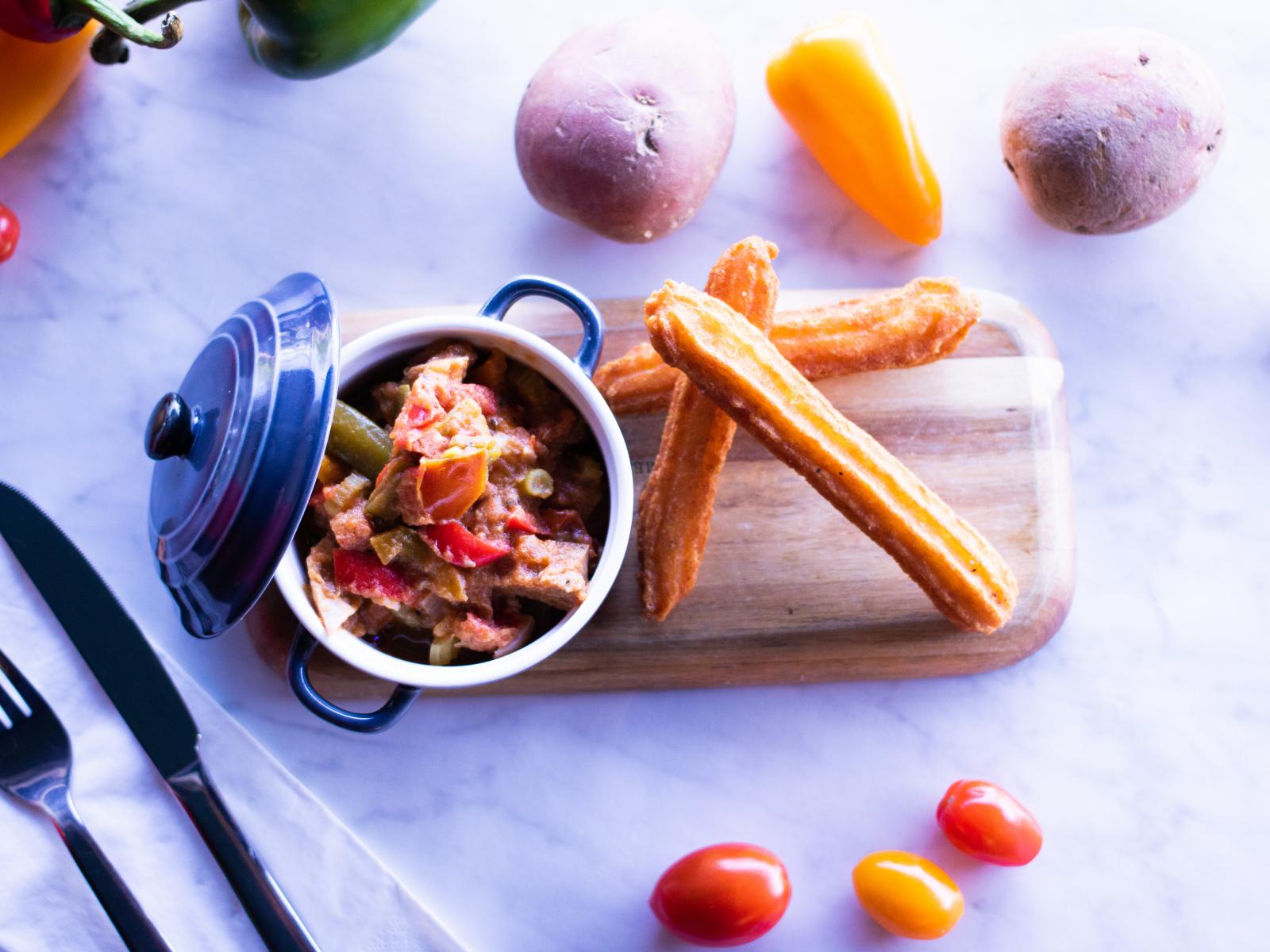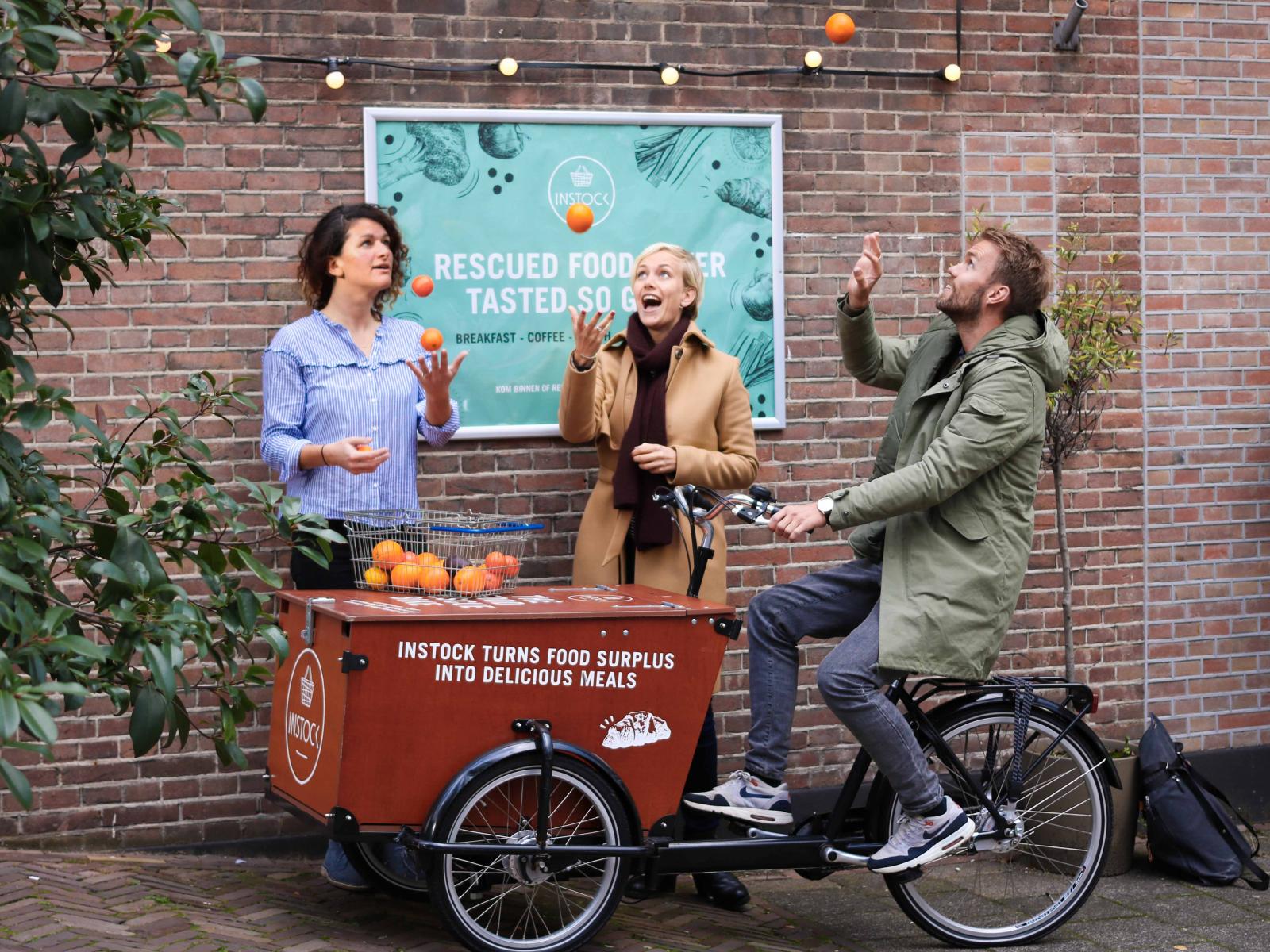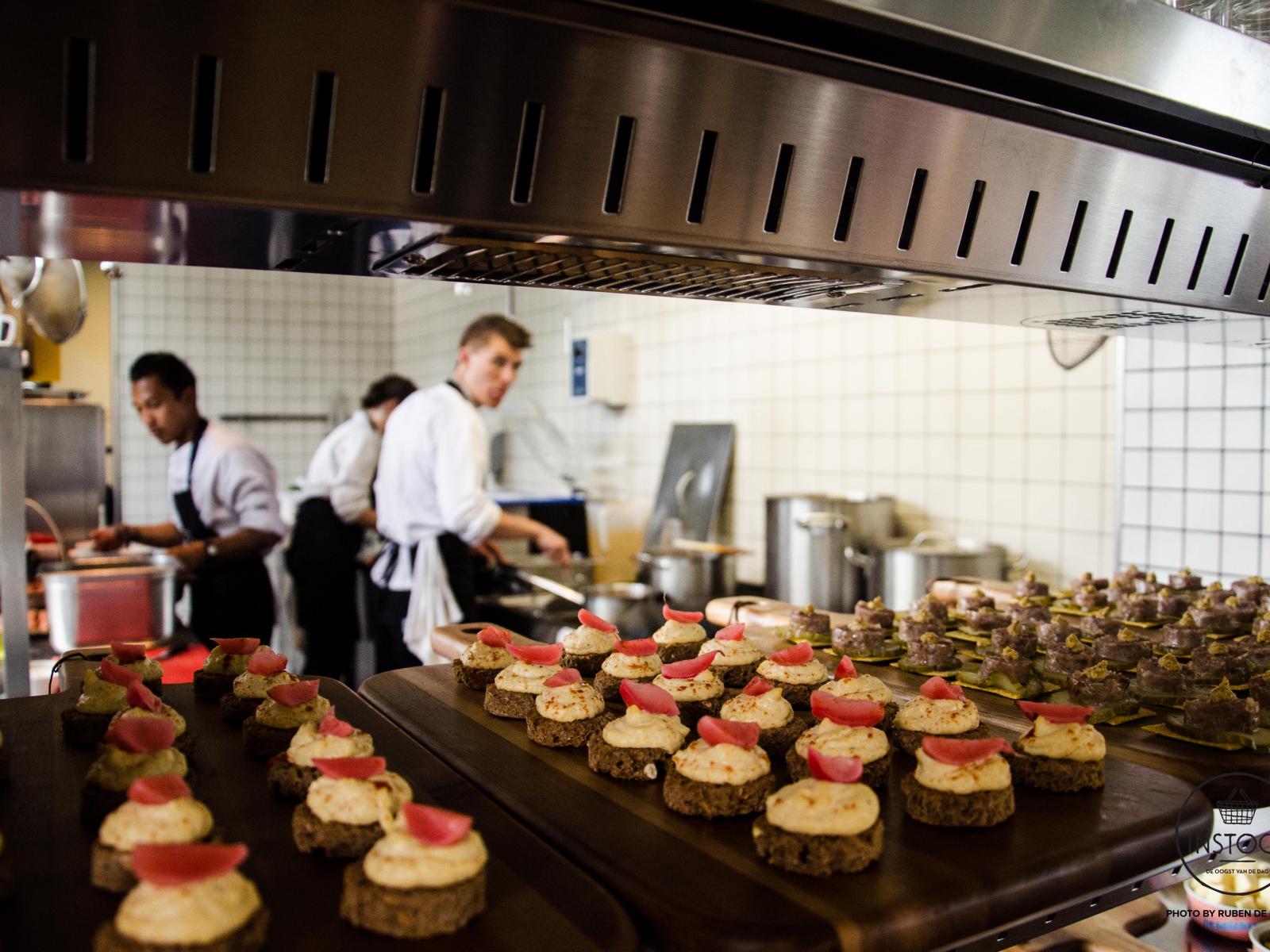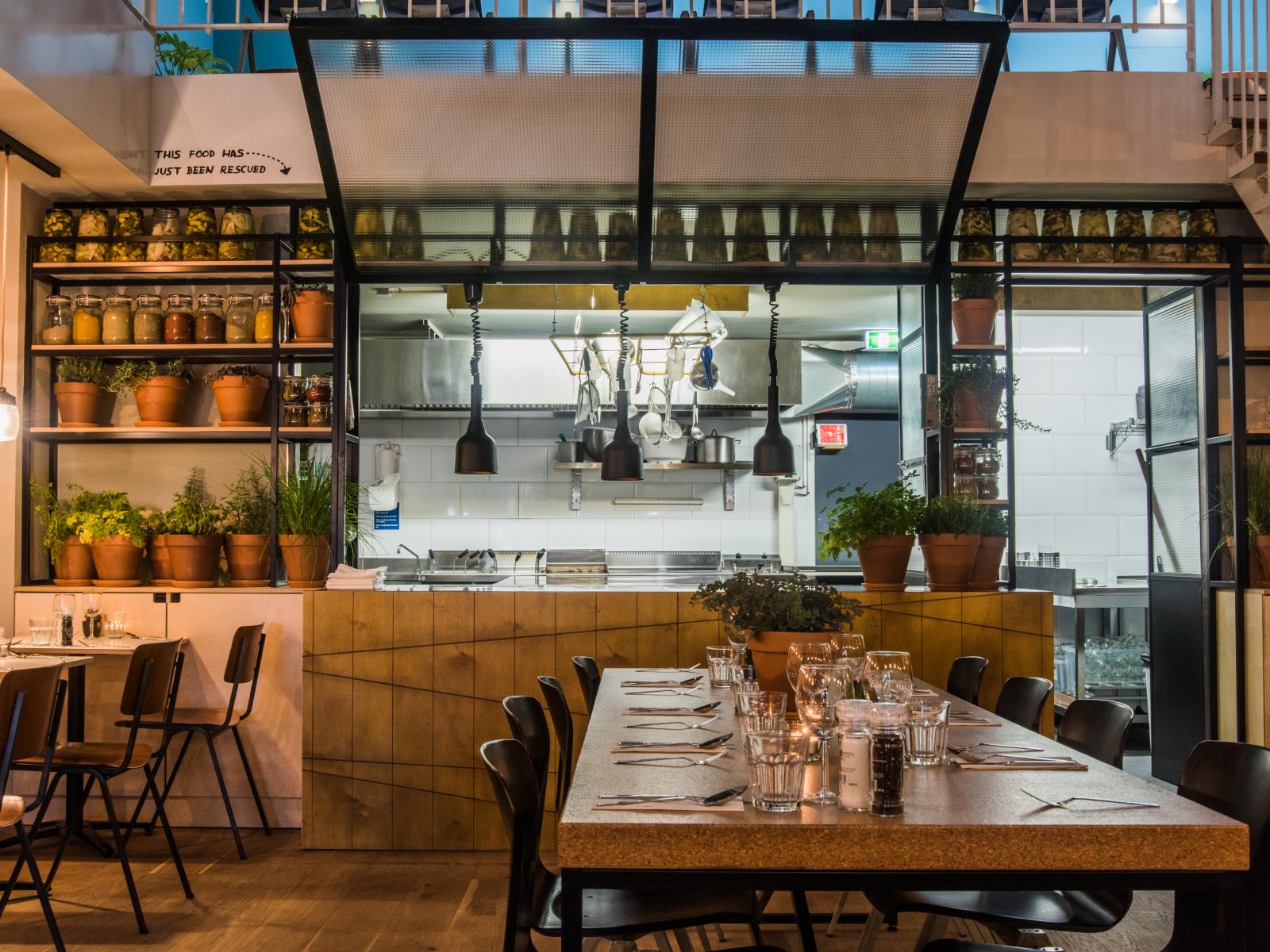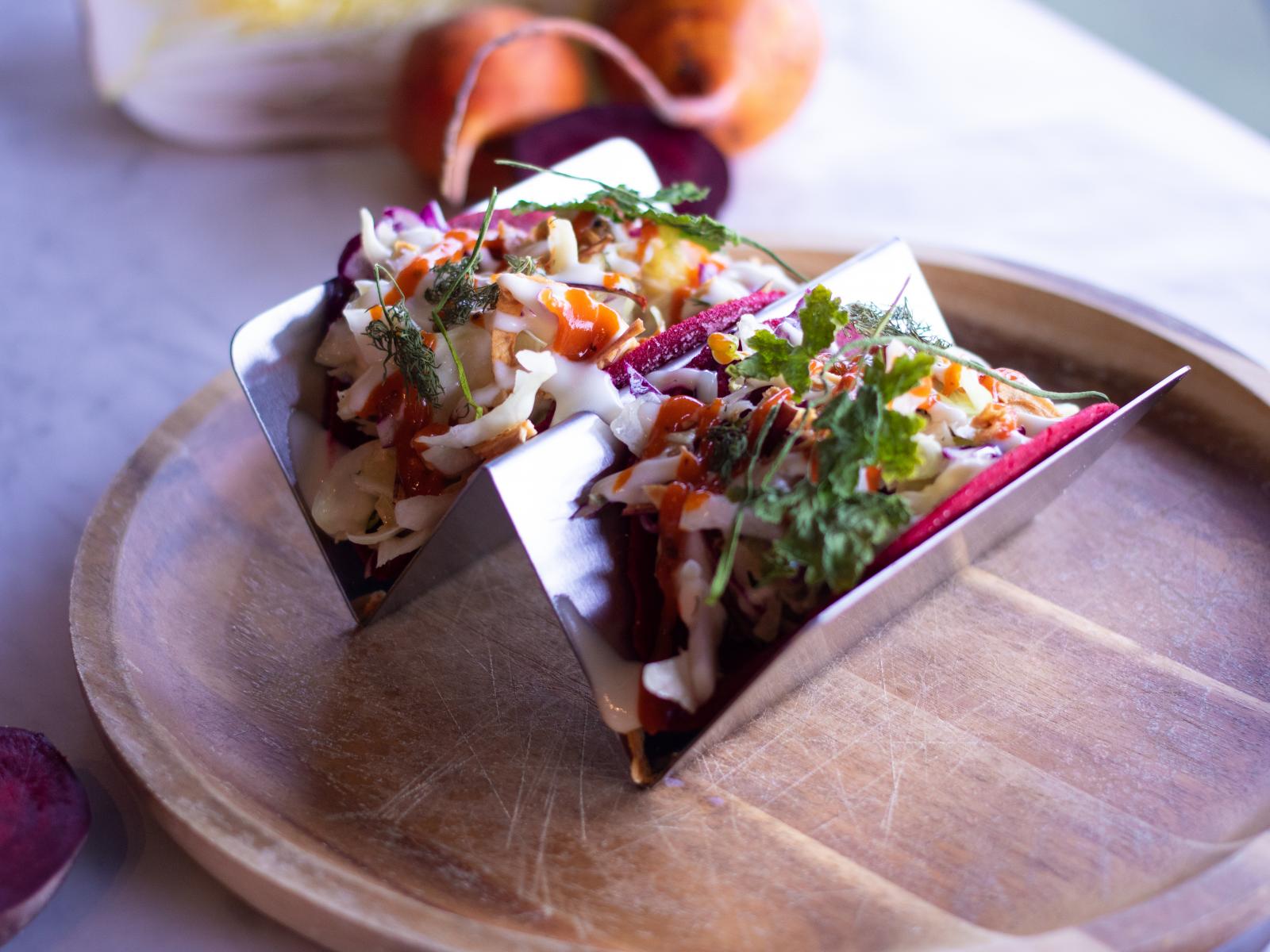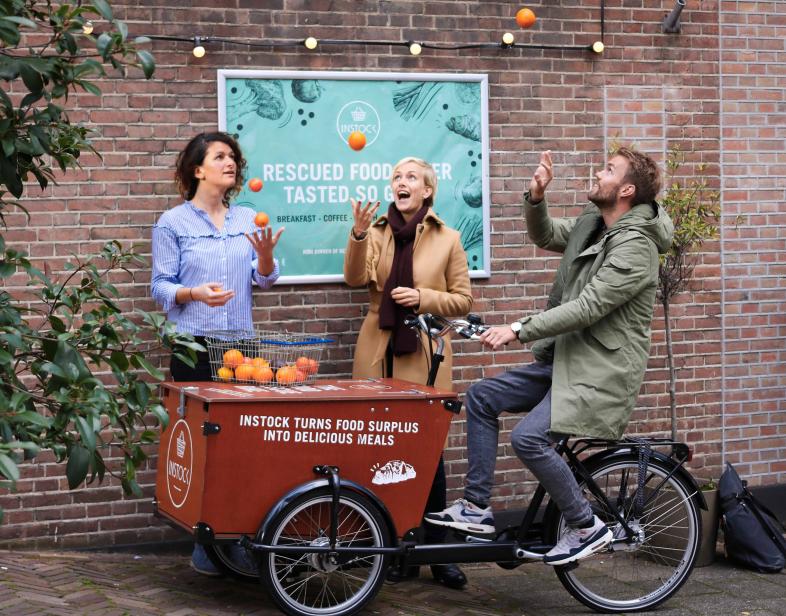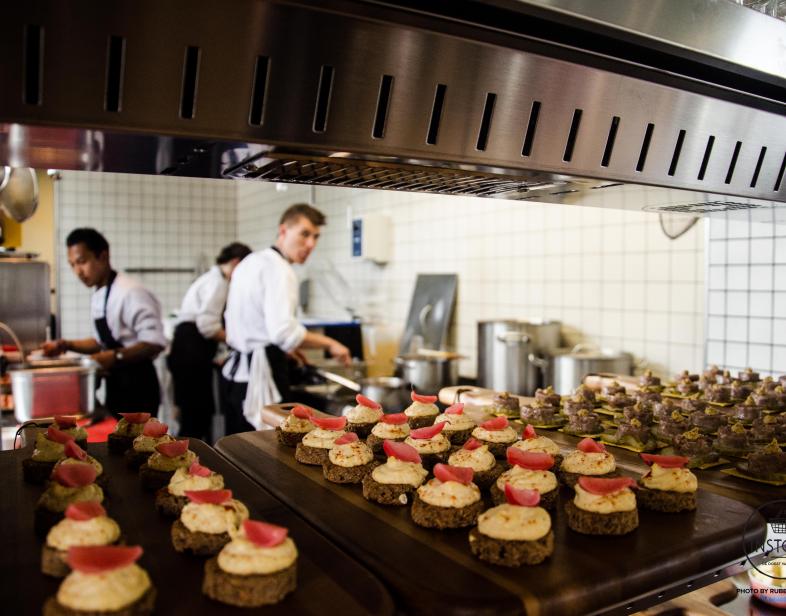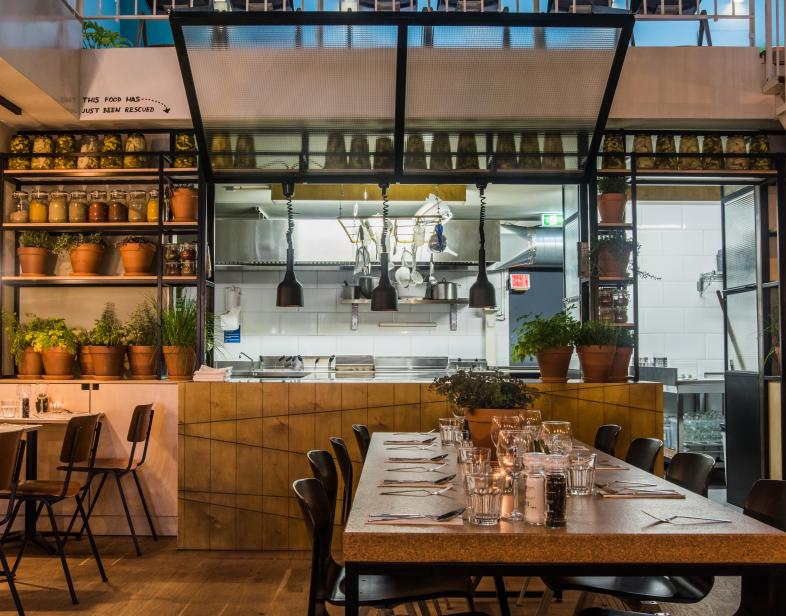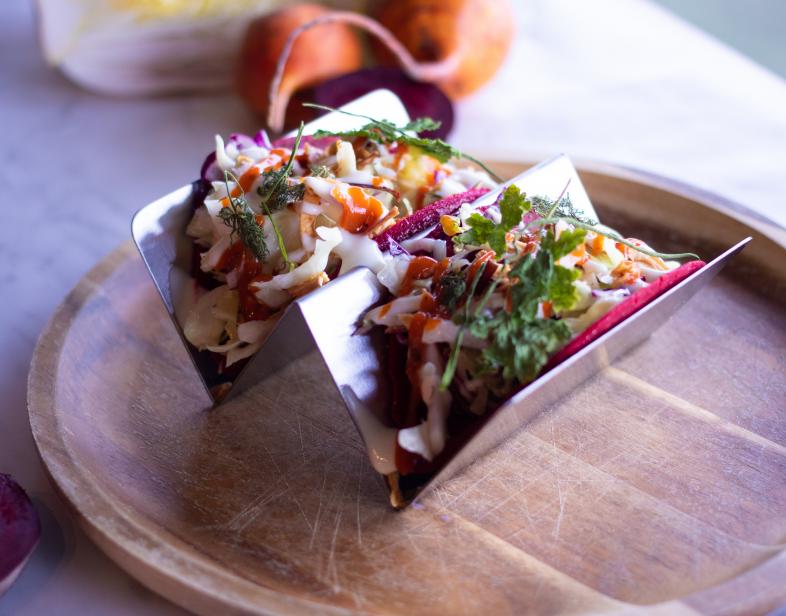An Overview Of Our Solution
With Instock we want people to enjoy food instead of wasting it. One third of all food production is discarded. This is a huge environmental burden! When people waste food, water, CO2, energy and land, that has been used to grow our food, is also wasted. Instock wants to change this! Instock strives to maximize the value of food. Daily our three Instock restaurants serve breakfast, lunch and dinner created from unsold products. We collect these unsold products at supermarkets and other producers. Imagine fruits and vegetables with some imperfections, one day old bread or the surplus of meat and fish. The chefs of the instock restaurants create the most delicious meals with this food.
We empower people to join our cause by simply enjoying the harvest of the day. By doing so they don’t just save food, but also change their perception toward food.
- Population Impacted: over 100.000 people
- Continent: Europe
Context Analysis
Food waste occurs in the entire food chain. Especially at households. Thirty percent of Dutch consumers throw away food or drinks at least two times a week. Besides, consumers are picky and often give products like a small zucchini or a blemished cauliflower the cold shoulder. Large numbers of Dutch consumers want to reduce food waste. This is revealed in a survey commissioned by Rabobank (amongst 1126 consumers) and conducted by market research agency GfK. Consumers also state in the survey the practical solutions they believe would be most helpful in reducing food waste. The respondents say they often throw away food unconsciously and note that they find it difficult to change their behaviour. They also report that their partners are picky when it comes to eating leftover food.
Describe the technical solution you wanted the target audience to adopt
Our mission is to reduce food waste and create awareness of the issue. We take on this challenge quite literally by using products that would otherwise remain unsold. Moreover, we believe that awareness should be raised in a positive and fun way. Food is all about enjoyment after all! We have noticed that we’ve gotten more out of touch with the food we eat in the last decades. With all the facilities that the present-day has to offer, we don’t need to put much effort into our meals anymore. There’s enough food and plenty of choice. Our goal is to make people value food more in several ways: through a good dining experience in one of our restaurants, via our masterclasses, and by selling products like our cookbook Instock Cooking and our craft beers Pieper Bier and Bammetjes Bier.
Type of intervention
Describe your behavioral intervention
Food waste occurs in the entire food chain. Through collaboration we have noticed that we brought much greater commitment than via finger pointing and telling people what to do. If we make people co-owner of the problem they will proudly become ambassadors of the solution as well. That is why we raise awareness in a positive and fun way. For example, besides offering a possibility to dine at Instock, we also inspire consumers to waste less/no food at home. We do this by providing tips, sharing recipes (that people can request), but also by offering Masterclasses and by publishing our own cookbook.
To reach the youngest generation we created a teaching package about food waste in October 2017. This teaching package is for primary school students and if available for free for primary school teachers from our website. Besides consumers we work together with organisations in the Food Service Industry. We partner up with organisations with a similar mission and bundle our marketing and sales.
Other companies in industry we offer the possibility to work with rescued fruit, vegetables and potatoes. With the government we have meetings about ways we can work together or learn from each other. We also have tight bonds with the Food Bank; we introduce them to potential suppliers and making them familiar with logistical pick-up processes.
As needed, please explain the type of intervention in more detail
By eating at Instock people don't only have a nice night out, they also become part of our philosophy. Which relates to their need to belong. By making our guests part of our mission they desire to cooperate. The last decade there has been a trend towards a more conscious and sustainable lifestyle. By cooperating with multiple organisations and people, we try to make 'not wasting food' the new norm. We do this not only by offering good food but also by emotional appeals. By highlighting people's responsibility in solving this problem from a positive angle.
Describe your implementation
Instock picks up unsold products at local supermarkets and other producers. These products meet every food safety guideline, but can simply not be sold anymore for various reasons. How about that one-day-old bread, that bundle of oranges that carries one rotten but seven fresh ones, those slightly discolored cauliflowers? Instock believes that those products deserve another chance! Our chefs create delicious meals out of these products. When our guests eat in our restaurants we always tell them about our mission. Even the most sceptic people become enthusiasts. By giving them great service and offering some extra information we create ambassadors, that will not only tell other people about our restaurant, but many times also try to waste less food at home. We give our community, and everyone interested, many practical tips and tricks to avoid wasting food at home. Therefor our impacts is bigger that just the kilo's we rescue and our direct reach. Furthermore, by showing other businesses that we can really make a profitable business out of something that was once seen as waste, they see that there is (potential) revenue in these waste streams. More and more entrepreneurs start to work with food surplus. The key success factors are: being positive, remaining creative, cooperation and lead by example.
Our biggest obstacle is for us to reach people that are sceptical about our products. They think it is waste and that the food we serve is not good. Therefor we are trying to receive a Bib Gourmand certification for our work to have an official evidence for the quality of our food.
External connections
Fortunately, we are not alone in the fight against food waste. We mainly work together with Albert Heijn. We collect products from around 160 stores throughout the country. All employees ensure that the products that are still suitable for Instock are separated and put aside separately. Instock collects these products and makes dishes from them. In addition, we are supported with products by other producers.
In our services we are targeting everybody. We try to involve consumers by offering dining experiences, but also Masterclasses and information how to reduce food waste through our cookbook, website and social media channels. To reach the youngest generation we created a teaching package about food waste in October 2017. This teaching package is for primary school students and if available for free for primary school teachers from our website.
Besides consumers we work together with organisations in the Food Service Industry. We partner up with organisations with a similar mission and bundle our marketing and sales strengths. Other companies in industry we offer our products (beers and Granola), but also the fruit, vegetables and potatoes that we can't rescue with our restaurants. With the government (ministries and municipalities) we have regular meetings about ways we can work together or learn from each other. We also have tight bonds with the Food Bank; by introducing them to potential suppliers and making them familiar with logistical pick-up processes.
Who adopted the desired behaviors and to what degree?
Besides rescuing food, we want to raise awareness about the subject. We do this via our cookbook Instock Cooking, education package and Master classes. Until now our guests have saved over 420,000 kilos of food by eating at Instock. In September 2017 we also set up our own Food Rescue Center, a place where we collect unsold products (especially fruit and vegetables), sort out these products and offer them to other restaurants and caterers. This way other people in the hospitality industry can buy circularly, and together we can save thousands of kilos of food. We already work together with around 20 entrepreneurs.
With our inspiration sessions and tips, we hope to encourage many home cooks to waste less food. We have received more than 500 people for our Masterclasses, sold over 10,000 cookbooks and have an online community of 22,000 people. Our education package on food waste has been downloaded by more than 100 of primary schools.
How did you impact natural resource use and greenhouse gas emissions?
For the production of vegetables, fruit, fish and bread you need on average 2.300 liters of water per kilo. While producing it, 0,75 kg of CO2 is emitted. The impact of meat if even bigger. For 1 kg meat you need 10.125 liters of water on average, and 15 kg of CO2 is emitted.
With a dinner at Instock 2.470 liters of water can be rescued and 1,74 kg of emitted CO2 can be avoided . Until now we have saved over 420,000 kilos of food. This equals around 1,296,960,000 liters of water or 1.026,709 tons of CO2.
Livestock farming emitts a lot of CO2, but also methane gas. The effect of methane gas is 23 times stronger. Livestock also needs a lot of food, which enlarges the footprint of meat and dairy products even more.
Sources
http://iet.jrc.ec.europa.eu/remea/sites/remea/files/energysmartfood_pub…
http://www.rivm.nl/bibliotheek/rapporten/2016-0074.pdf
http://www.voedingscentrum.nl/encyclopedie/watergebruik.aspx
Book: Porcelijn, B. (2016). The hidden impact
What were some of the resulting co-benefits?
The global population is growing on a staggering rate. In 2050 it is going to reach 9 billion people. In order to meet the demand of this growing worldwide population, according to the FAO, we have to increase our worldwide food production with 60% by 2050, otherwise more people will die from starvation. But why are we are talking about producing more food, while one third of the entire food production is wasted? By making sure that we waste less food,we can feed more people, stop with pressuring the environment unnecessary. It is our mission, in line with the Sustainable Development Goals 12.3, to reduce food waste by 50% by 2030. This is a tough challenge. With our restaurants alone, we can save tons of kilos, but how can we save millions? We must remain creative and innovative. Although with the popularity of our restaurants we show that there is a demand for our products. But to really scale up and make an impact we are working together with the entire food chain.We consult them about solutions and look for solutions together. Besides that we create employment. Instock now consists of 100 employees.
Sustainability
We believe that solving the challenge of food waste requires a professional logistic approach, by creating value that in its turn creates a new profit model. We use the profit we gain from our current initiatives to pay for all the operational costs. The concept sustains itself, instead of relying on the support of third parties. This made it possible for us to grow from a pop-up restaurant to three permanent restaurants, a food truck and a catering service. Additionally, we’ve published a cookbook called Instock Cooking and created our Pieper Bier, which is a craft beer made out of rescued potatoes. If it’s up to us though, this is just the beginning.
Return on investment
1.2 million euros is invested in Instock. We have a revenue of 2 million euros per year. We are currently breaking even. We expect to make a profit in the upcoming year.
How could we successfully replicate this solution elsewhere?
Our service is very scalable as long as food waste continues to exist. We offer fruit and vegetables that we rescue to other restaurants and catering companies and remove the logistically difficult process for them. We are making it a matter of flexibility and ordering for these companies to work with unsold products. In addition, with the waste that is currently taking place, more Instock restaurants can be opened. Also other entrepreneurs could open similar restaurants in their own countries. We sometimes offer inspirational sessions for interested parties.
